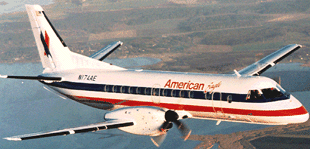August 14, 2000, the pilots of American Eagle Airlines, represented by the Air Line Pilots Association, International, overwhelmingly rejected the tentative agreement reached with management. Of the pilots who participated in the balloting process, 84 percent voted against the four-year agreement. "The American Eagle pilots’ solid rejection of this contract not only represents our dissatisfaction with the provisions contained within the agreement, but also our growing dissatisfaction with the quality of work life at the airline," said Capt. Cevin D. Kehm, chairman of the American Eagle pilots’ Master Executive Council, a unit of ALPA. "We believe the vote sends a clear message to management: We are not satisfied with an airline that does not support its greatest resource, its labor force." "There is much that management must do to attract and retain the high quality and experienced pilots needed if American Eagle is to realize its potential.

